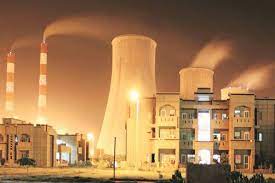Description

Disclaimer: Copyright infringement not intended.
Context
- The Union Environment Ministry has approved an exemption to the laws governing the regulation of coastal zones and has paved the way for gas based-powered plants to be set up on the Andaman and Nicobar islands.
- The Island Coastal Zone Regulation (ICRZ), 2019, limits infrastructure development on vulnerable coastal stretches.
Gas-fired power plant
- A gas-fired power plant or gas-fired power station or natural gas power plant is a thermal power station which burns natural gas to generate electricity.
- Natural gas power stations generate almost a quarter of world electricity and a significant part of global greenhouse gas emissions and thus climate change.
- However they can provide seasonal dispatchable generation to balance variable renewable energy where hydropower or interconnectors are not available.
Advantages of Gas Turbine Power Plant
A gas turbine power plant has following chief advantages −
- The design and layout of a gas turbine power plant is quite simple than a thermal power plant since no boilers and their auxiliaries are needed.
- As a gas turbine power station does not require boilers, feed water arrangement, etc. For this reason, it is much smaller in size than a thermal power plant of the same generating capacity.
- A gas turbine power plant requires less water as compared to a thermal power plant since no condenser is used.
- The capital and running costs are much lower than that of a thermal power plant of the same generating capacity.
- The maintenance cost is also quite small.
- The construction and operation of a gas turbine are much simpler than that of a steam turbine.
- In a gas turbine power plant, there are no standby losses.
- A gas turbine power plant can be put into operation quickly from the cold conditions.
Disadvantages of Gas Turbine Power Plant
The disadvantages of a gas turbine power plant are given as follows −
- The overall efficiency of a gas turbine power plant is very low, about 20%, because the exhaust gases from the turbine contain sufficient heat.
- The temperature of the combustion chamber is very high (about 1700 °C). Hence, its life is comparatively reduced.
- There is a problem in starting the gas turbine power plant since before starting the gas turbine, the compressor has to be operated for which power is needed from some external source. Although, once the plant is started, the external power is not required because the turbine itself supplies the necessary power to the compressor.
- For a gas turbine power plant, the net output of the plant is very low. It is because a greater part of the power developed by the turbine is used in driving the compressor
Status of Gas based power plants in India
- According to industry sources, about Rs 50,000 crore of investments in gas-based power projects are in the doldrums due to the policy lacuna.
- The draft MNRE RTC Scheme document considered the life of gas-based plants at 15 years and has therefore not considered them suitable for blending with RE sources.
- However, according to the CERC Tariff regulations, the useful life of gas-based power plants is 25 years, similar to coal-based plants.
- Hence, gas-based plants should be considered at par with coal-based plants for blending with renewable sources, industry sources feel.
- Apart from being environment friendly, the land and water requirement of gas based power plants is only 25% of the coal-based power plant.
- Because of flexibility in gas generation and faster ramp up and winding up abilities, generators will also be able to have a large mix of RE in bundled power.
- The cost of gas based power is now equivalent to that of coal-based power, as the current gas prices — at around $2.3/mmBtu — is much lower due to a drop in crude prices globally.
- Even compared to other balancing alternatives like batteries being considered by SECI to increase reliability of RE, gas is a cheaper alternative.
Way Forward
- Given the benefits of gas-based power plants in efficiently balancing the grid and reducing emissions, the government needs to make strong efforts to revive domestic gas production and/or look at importing natural gas. Lack of concern initiatives in this regard may result in existing and under-construction gas based plants turning into non-performing assets.
- Thus, there is a need to incentivize exploration and production of domestic hydrocarbon resources. At present, the natural gas prices in the country are inadequate to cover the cost of production.
- Beside, given the natural gas glut in the international market and the decline in prices, long-term gas import contracts can be looked at as a viable option.
Conclusions
- Gas turbines are found to be more efficient than coal power plants at full load and at minimum complaint load. However, their efficiency range is broader and their minimum power load is higher than those of coal power plants.
- Gas turbines are not only more efficient, but also faster than coal power plants. Start-up times in gas turbines range between 4–45 min in hot starts and 4–250 min in cold starts, which is quite lower than coal power plants.
- Similarly, full cycle times for gas turbines range between 45 and 280 min, while for coal power plants range between 350 and 800 min. Ramping rates are also generally higher in gas turbines than in coal power plants.
https://epaper.thehindu.com/Home/ShareArticle?OrgId=G699Q0UDB.1&imageview=0













